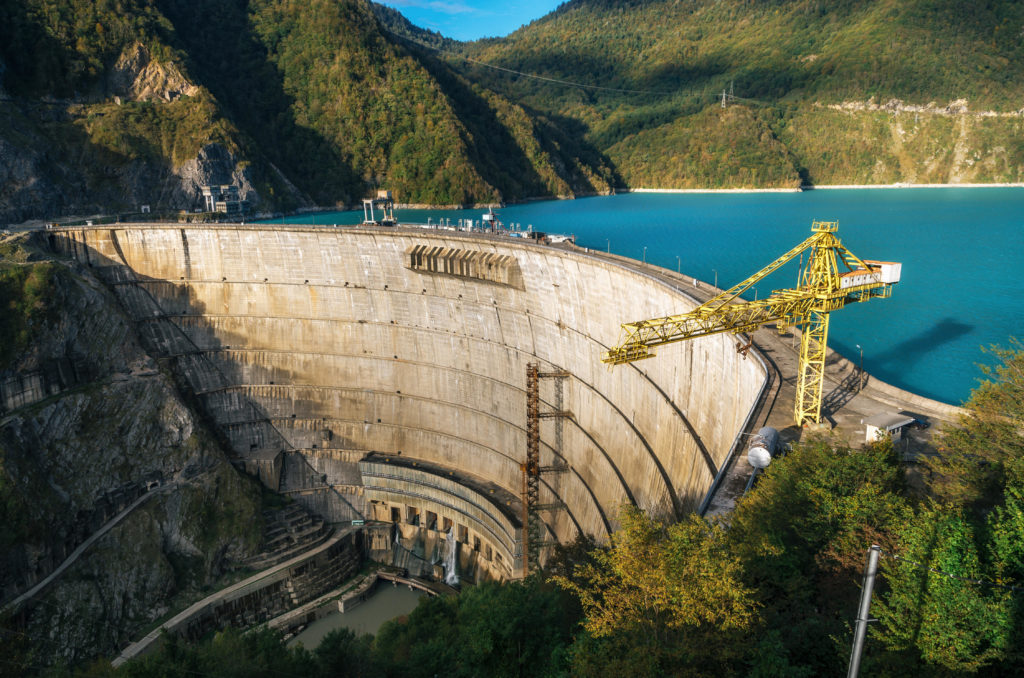TBILISI
Istanbul-based ENKA company said it had terminated a $800 million contract on the construction of a hydropower plant (HPP) in Georgia, a project that caused controversy and a dispute that has caused political upheaval in the ex-Soviet country since October 2020.
The Turkish company cited “breaches of contract and force majeure” in its note posted on Istanbul’s Public Disclosure Platform.
The project provisionally planned to include two dams on the Rioni river in western Georgia, with a potential capacity of over 400 megawatts.
Georgia was hit by drastic power cuts during the early 1990s when, even in the capital, consumers were lucky to get two hours a day of electricity. But hydropower has, in the last few years, turned the mountainous country, with its many rivers, into a net energy exporter. Its rates by kilowatt-hour are among the lowest in the world.
The Namakhvani dual-dam project attracted little attention when it was first planned more than five years ago. Protests began much later. The project, the biggest in the history of post-Soviet Georgia, was to focus on the Rioni river, an iconic waterway fed by mountain glaciers.
Mass protests erupted last October, with demonstrators pouring into the streets of Tbilisi earlier this year as well as in the western part of the country, close to the project site. Protesters, many of whom were little known until the last few months, raised the alarm over what they said were seismic and other natural disaster risks.
In June, the European Union said it had reached a partial agreement with Georgia’s government as well as with the leaders of a protest against the project.
As a result of a meeting organised by the European Union Energy Consolidation Dispute Resolution and Negotiation Centre, all sides agreed that a qualified risk assessment of the plant construction should be carried out, all existing fences removed around the construction site and local residents allowed to move freely. It was also agreed that the government should develop a plan for energy security for the next 10 years.
The government earlier agreed to suspend major work on the Namakhvani project pending a review, though project organisers said major environmental and social impact studies were completed long ago.
The project, originally a 50-50 investment by ENKA Renewables, a subsidiary of the Turkish ENKA Inshaat company, and Norway’s Clean Energy, was renegotiated and became a 90 percent ENKA endeavour, with the Norwegian firm holding a 10 percent stake.
The contract was signed on April 25, 2019, and construction began in the summer of 2020. Completion had been expected in the second half of 2024.

